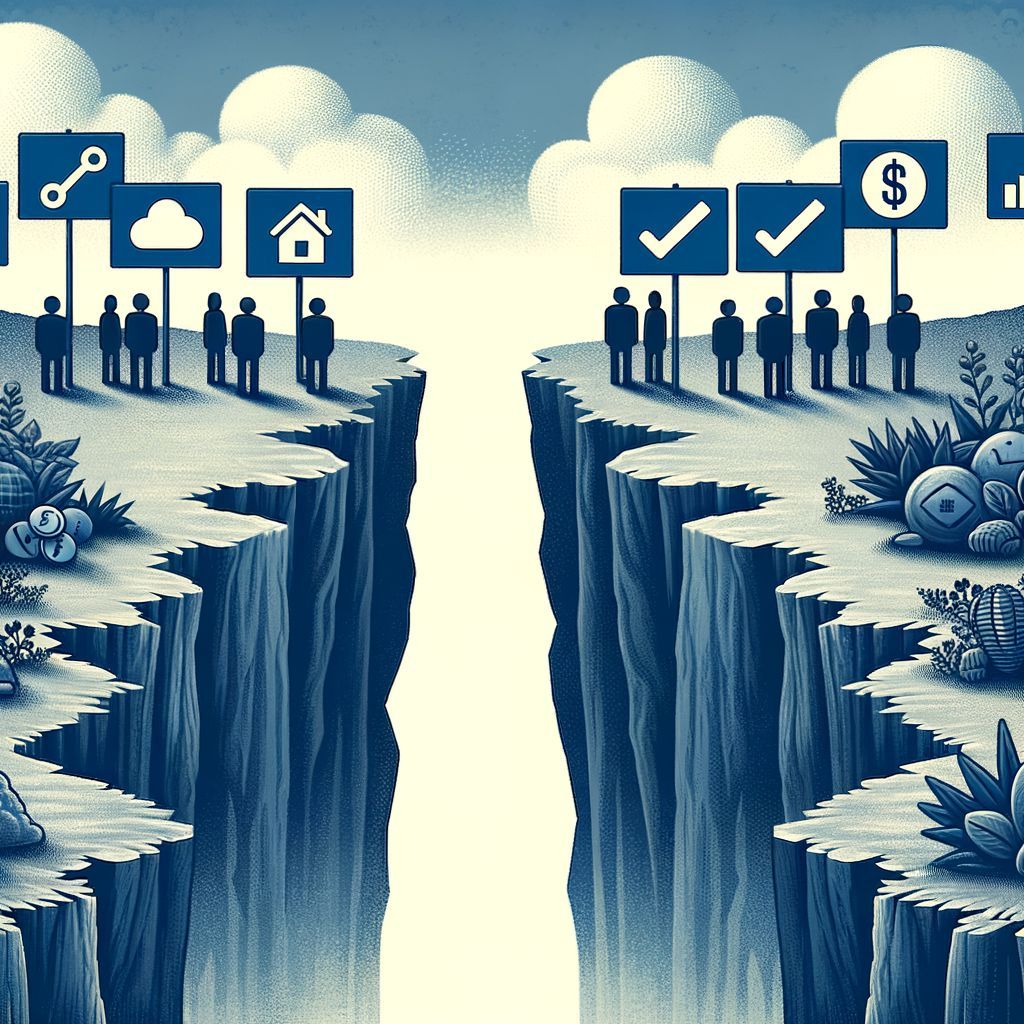

Pic: Midjourney
Editors' Note: Many Fast News images are stylised illustrations generated by Dall-E. Photorealism is not intended. View as early and evolving AI art!

Unified data shines,
Crafting personalised paths,
Marketers, it's time.

Partner Op-Ed: The CMO change agent: tearing down company silos and fixing customer experience using data + AI
By Leandro Perez, Senior Vice President and CMO APAC, Salesforce
Ever had one of those unexpected moments where you call customer service to fix a problem, and somehow by the end of the call, you’ve bought something new — and you were happy about it?
It’s those delightful moments – when a company really gets you – that make all the difference. But too often, they’re the exception, not the rule.
Here’s why: even though companies are sitting on mountains of data from every click, call, and transaction, most are still not using it to create the seamless, personalised experiences customers expect.
In fact, 80 per cent of customers believe their experience should be better, considering all the data companies collect. Yet many organisations remain stuck in silos, with marketing, sales, and service teams all working in isolation. The data is there, but there’s no way to use it.
For CMOs this presents both a problem and an opportunity. They sit at the intersection of every customer touchpoint, yet many are trapped in disjointed strategies from different departments.
But what if we could flip the script? What if every interaction – from marketing to sales to service – felt like one continuous conversation?
From silos to synergy: Making every customer interaction count
The reality is, customers don’t see the internal barriers that we’ve built. They don’t care about the fiefdoms of marketing, sales, and service – to them, it’s all one relationship. They care about being understood and treated consistently, no matter who they’re interacting with.
That’s where a more unified approach comes in. It’s not about collecting more data – most of us already have enough of that. It’s about piecing together a puzzle – each interaction is a piece that reveals the bigger picture. By doing this, we can anticipate customer needs and respond in ways that feel personal and relevant.
Take Fisher & Paykel, for example. By bringing together data from their online stores and marketing engagements, they can get a much clearer view of their customers’ buying habits. Whether someone is a one-time purchaser or shops across categories, they can personalise the experience.
Say a customer buys a new fridge – instead of showing them another fridge the next time they visit, as if they have no knowledge of the prior purchase, the system suggests relevant accessories like water filters. And with connected device data, they know when it’s time for a replacement part, triggering timely reminders.
Now imagine a customer calling with a service issue. Rather than just fixing the problem, the representative is empowered by AI to suggest the next best action – like offering a discount on a recently browsed product or a self-service option.
Guided by AI insights from browsing behaviour and purchase history, service teams can make timely offers that build trust and drive future purchases.
This shift turns service interactions into opportunities to build loyalty and generate revenue, all while making customers feel valued and understood.
With customer acquisition costs rising by 60 per cent over the last five years, it’s clear that strategies like upselling, cross-selling, and referral marketing can generate new revenue at a fraction of the cost of traditional channels.
The technology that brings it all together
Of course, none of this is possible without the right technology. To create these connected experiences, we need systems that pull together data from every corner of the business. Salesforce’s Data Cloud does exactly that – bringing all customer data into one place, and layering Einstein AI on top to generate meaningful, actionable insights.
You’re no longer guessing what customers need – you know exactly when and how to engage them, turning transactional interactions into the delightful moments that keep customers coming back.
Look at Air India, for instance. Faced with the challenge of managing over 550,000 monthly service cases across a decentralised system, they used Salesforce’s Data Cloud to unify customer data from various sources, giving service teams a 360-degree view of every passenger.
With AI-powered recommendations from Einstein AI, Air India teams can offer personalised services, like seat upgrades during delays or tailored travel deals based on past trips.
This approach not only improves customer satisfaction, but also makes operations more efficient and helps the business grow.
The strategic imperative for CMOs
So, what’s the takeaway for us as marketers? We need to think beyond our traditional roles and collaborate across the entire customer journey. It’s up to us to make the case for breaking down silos, aligning teams, and integrating data across our organisations.
But let’s be honest: that’s easier said than done. Internal politics can make it tough to bring departments together, with every leader focused on their own priorities. The key is to approach it with a spirit of collaboration, not competition – showing other leaders how a unified approach benefits everyone.
By working closely with other departments, marketing can become more than just a function. It becomes a key part of the broader business strategy, helping to drive consistent customer experiences, increased revenue, and long-term loyalty.
The future of marketing isn’t about doing more – it’s about being smarter. It’s about creating personalised, meaningful experiences that reach the right customer at exactly the right moment, turning every touchpoint into an opportunity to build lasting relationships. And unified data is how we’ll do it.
In the end, the companies that understand their customers best will succeed – and that starts with us.










